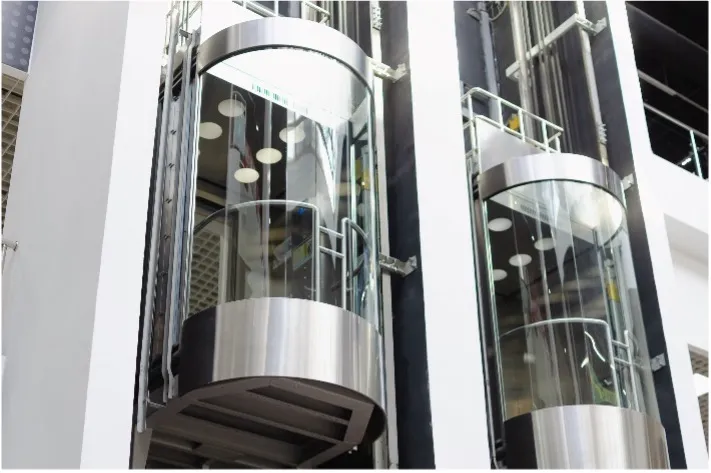Applications
Case Study; FeRAM in Elevator Control
Elevator control is changing:
FeRAM's high-speed, durable, and reliable features streamline maintenance
Elevator control systems must always operate accurately and reliably to ensure passenger safety. Maintaining that reliability even in emergency situations, such as the sudden loss of power, is a major challenge. This is where the excellent properties of FeRAM (ferroelectric memory) come in handy.
Table of Contents
FeRAM Features and Benefits

FeRAM is a memory technology with high write speed and high write endurance. Therefore, it offers the following advantages in elevator control systems.
High-speed data recording
The user's elevator control signals, passenger weight, elevator basket acceleration, position information, brake usage, door open/close information, etc. can be recorded in real time at high speed.
High rewrite tolerance
Even in elevator control, which requires frequent data rewriting, FeRAM can reliably record data for a long period of time*.
EEPROM, which is the memory mainly used until now, has a write endurance of 1 million rewrites, so if logging is done once every 60 seconds, it will only last for 1.9 years. In this case, even if a log is acquired once every 0.1 millisecond, it can be used for 320 years.

Data Retention
Data is not lost even in the event of power loss, allowing safe operation to resume immediately after power is restored.
*2Mbit SPI product (MB85RS2MTA) can be used for 95 years at 55°C environment.
Application to Elevator Control

Elevator control systems can be divided into two main types.
- MR (Machine Room) system: Elevators are controlled in a separate room
- MRL (Machine Room Less) method: Elevator is controlled inside the elevator
In both methods, FeRAM demonstrates its high reliability and performance. The following two control methods are commonly used.
PLC (Programmable Logic Controller) control type
Conventional control method using hardware-based control logic.
Microcomputer control type
This is a more flexible and cost-effective control method that uses software-based programs for control.
Currently, many elevator control systems are shifting from PLC to microcomputer control, and FeRAM is highly expected to be adopted during this transitional period. In particular, the use of FeRAM is effective in ensuring reliability as well as cost reduction during the transition to a new system.
Summary
In elevator control systems, FeRAM plays an important role in ensuring passenger safety due to its high writing speed, high write endurance, and excellent data retention. The use of FeRAM can increase the safety and reliability of elevators as well as the efficiency of the entire system.
